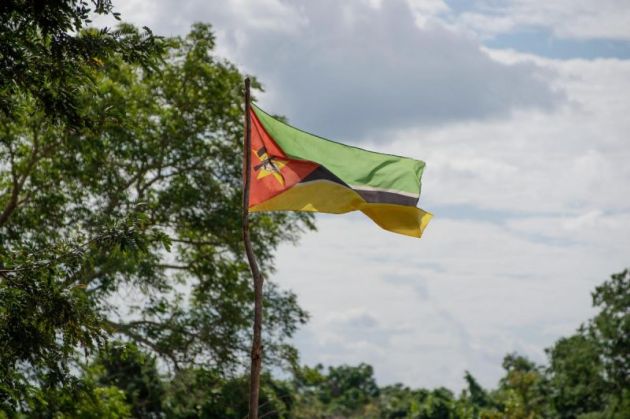Mozambique bishop says life in Cabo Delgado is 'horrific' due to terror from ISIS-linked group

A Mozambican bishop has a described life as "horrific" in the Cabo Delgado region as a violent group known as Al-Shabaab which identifies itself as a cell of the self-proclaimed Islamic State, also known as ISIS, is terrorizing the country's north.
"We are experiencing something never seen before," said Bishop Dinis Matsolo of the Methodist Church of Southern Africa, Mozambique Synod.
The attackers "can be described both as terrorists and insurgents," said Matsolo noting that in Cabo Delgado, the French oil giant Total has been seeking to secure a $20 billion LNG facility which now seems on hold.
"They started by instigating violence and disobedience to the point of discouraging people from attending government events and using facilities like hospitals, schools, and so on," said Matsolo, president of the Justice, Peace and Reconciliation Commission of the Christian Council of Mozambique.
The troubles in the area that borders Tanzania began in October 2017 with attacks on police stations then onto targets such as governmental facilities.
"Later on, even churches and mosques could not escape their furious barbarity," said Matsolo.
Next, the attackers began terrorizing inhabitants of Cabo Delgado Province's northern districts, hitting centers such as Mocímboa da Praia, Macomia, Quissanga, and Palma.
"The group kidnaps people, especially young boys and girls, engaging in torture and rape. They decapitate those who try to resist or run away and burn their houses," said the bishop.
"It is currently estimated that more than 2,500 have been killed, and about 700,000 have become internally displaced people since 2017."
CHRISTIAN COUNCIL OF MOZAZAMBIQUE
Matsolo said the Christian Council of Mozambique, the Mozambican Episcopal Conference, and the Mozambican Islamic Council joined to aid the affected people in Cabo Delgado.
"The Christian Council of Mozambique created a community and inter-religious dialogue platforms to provide interaction spaces and foster dialogue and peaceful and harmonious coexistence," said Matsolo. "We started pastoral counseling and accompaniment on the ground."

He noted, "Military intervention cannot be avoided. But it should not be seen as the only solution."
He said there is a need to address poverty and unemployment by engaging young people on peace and income-generating projects. There is a need to construct regional alliances for peace and harmonious coexistence and anti-terrorism.
Mozambican church leaders are urging the government to act decisively to end the violent conflict, the Fredrick Nzwili reported for the World Council of Churches.
"Mozambique and Mozambicans are weeping...Some are weeping while praying...running...searching for food, for clothes, for water. Others are weeping while caring for those who are traumatized...," said Rev. Felicidade Naume Chirinda, president of the Christian Council of Mozambique.
In one of the most horrifying and shocking acts, according to the church leaders, militants attacked Palma town on 24 March, killed dozens and held half of the town for 10 days.
Palma is a seaport in Cabo Delgado Province. Initially a sleepy fishing center, the town stirred to life after international oil and gas companies invested heavily to extract the vast natural gas deposits discovered in the area in 2012.
"The attacks and killing were not only done to Palma inhabitants, but to the whole country," said Chirinda. "No one accepts that people can be beheaded like chickens in front of their children."
In 2020, the Ecumenical Committee for Social Development, a member of ACT Alliance, provided water, sanitation and hygiene services, agricultural tools and seeds as part of humanitarian response to 1,000 households displaced in Cabo Delgado.
Tearfund provided the funding. From March 2021, the Ecumenical Committee for Social Development will provide shelter to 300 households in the Corrane centre for internally displaced people with funding from Diakonie Katastrophenhilfe.